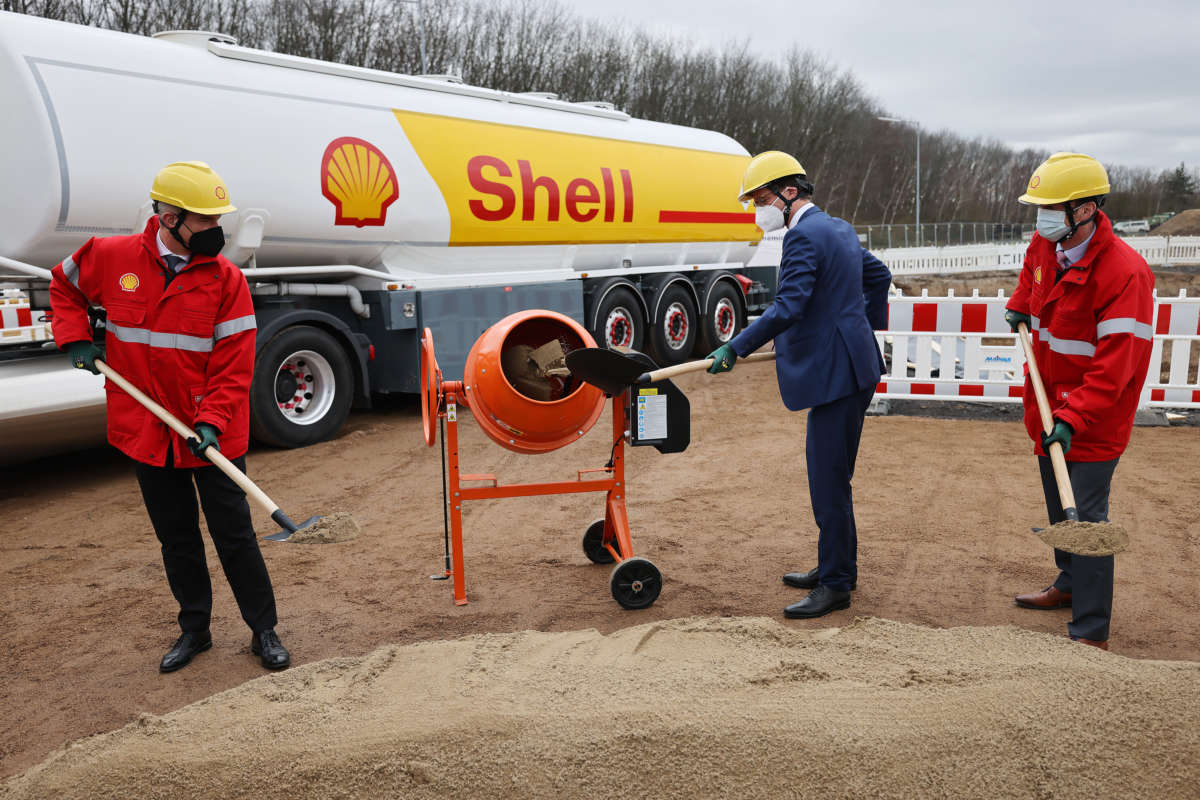Most Mega-Corporations’ Net-Zero Pledges Are Hollow, Report Finds
In the wake of COP26, a lot of ink has been spilled on how mega-corporations, under pressure from consumers and environmentally aware shareholders, are stepping up to the plate with promises to go entirely carbon neutral within a few years or decades.
Yet, a shocking new study of 25 mega-corporations, released this month by the NewClimate Institute and Climate Market Watch, finds that much of this is smoke and mirrors. In fact, the researchers conclude, in reality, the emissions-reduction strategies for these companies, with a cumulative revenue of over $3 trillion and a greenhouse gas footprint equaling 5 percent of the world’s total, add up to only a 40 percent reduction rather than the 100 percent rollback implied by “net zero.” As worryingly, by 2030 the reductions would only amount to 23 percent as compared to 2019.
Moreover, many of the pledges involve somewhat nebulous “offsets,” an accounting trick that allows a company to plant trees or implement other carbon-sequestration strategies in lieu of reducing emissions. Yet, as the authors of the report point out, to get anywhere near net zero, companies can’t play an either/or game: Instead, they have to both implement offsets and also, at the same time, reduce emissions.
Behemoths like Amazon, Google, Ikea and Walmart all were rated in the report as showing “low integrity” when it came to their net-zero pledges. Others, including Nestlé, Unilever and the BMW Group, were awarded a “very low integrity” moniker for their publicly stated efforts.
In some instances, these low grades were due to manifest failings; in others, the companies simply weren’t providing enough data to adequately analyze their goals. In the introduction to the report, the authors wrote that, “it is more difficult than ever to distinguish between real climate leadership and unsubstantiated greenwashing.”
But what is clear from the report is that the unsubstantiated greenwashing side of the equation is, unfortunately, all too common. Companies seem far more concerned with appearing to be implementing major eco-efforts than with actually fundamentally, and urgently, working to roll back the climate change crisis.
One of the practices companies use to make their efforts appear better than they in fact are is comparing current and future emissions levels to abnormally high baseline years, so that what in reality are regular annual emissions instead appear to be declining emissions. The GHG [Greenhouse Gas] Protocol defines three main kinds of emissions. Scope 1 emissions are direct emissions from a company’s property; scope 2 are indirect emissions from the purchase of electricity, heating, steam production and so on; and scope 3 are all the other emissions associated with a company’s activities, such as the distribution of a company’s product, the packaging of goods, business travel, the emissions associated with the garbage produced at the end of a product’s life, and so on.
Scope 3, in particular, has proven to be an area that large companies can manipulate data on to make themselves look better on the environment than they in fact are. “For example,” the authors write on page 20 of their 127-page report, “CVS Health’s scope 3 emissions are 70-80% higher in 2019 than in 2017, 2018 and 2020, without a clear explanation, potentially undermining the meaningfulness of the company’s target for a 47% reduction in scope 3 emissions by 2030 compared to 2019.” It’s a similar strategy to the tax-dodge that the Trump Organization is accused of, whereby the company allegedly inflated the values of its properties when trying to get loans, and then deflated the values when paying property taxes.
In that same section, the authors note that Unilever is claiming emissions reductions for its soaps and detergents operations based on taking credit for more energy-efficient water-heating systems for customers who wash hands with the company’s soap, and the use of more renewable electricity-generation sources for running the washing machines that use the company’s detergent.
At least 7 of the 25 companies the research focused on were so selective in what emissions they considered that the report concluded they could be hiding up to 98 percent of their actual emissions footprint, making their public promises little more than nonsense. Other companies camouflaged “upstream” and “downstream” emissions — upstream emissions being connected with the production of goods, and downstream emissions being associated with the consumption of those goods — including energy sales and the daily operations of their stores, from easy identification. In some instances, they only mentioned them in their report footnotes — and this despite the fact that the vast majority of their carbon emissions come from these sources. Still others sold off carbon-intensive branches of their operations to subsidiaries, and then reported declining emissions, even though, in reality, they had simply shuffled the emissions from one set of operations to another.
The malfeasance continues from one realm to the next. In many instances, apparently, the pledge to reach net zero is accompanied by no specific emissions reduction targets on a year-on-year basis, rendering the pledge little more than feel-good waffling. “12 of the companies with (net-)zero emission targets have made no specific commitment for the reduction of their own emissions in the net zero target year,” the authors write. These included Amazon, which the authors lambasted for pledging to get to net zero but not actually putting forward “any specific [greenhouse gas] emission reduction target.” A similar lack of specificity accompanied BMW’s net-zero pledge.
Pledging to get to net zero is the easy part. Actually getting there, and reshaping supply chains to ensure that at all points of the production and distribution process greenhouse gasses are actually significantly reduced, is the difficult part. The world’s largest corporations are perfecting the art of green spin. But, as this report shows, with catastrophic climate change now a looming reality, it’s past time for them to go beyond the spin and actually ensure that their public commitments are met over the coming years.





Geen opmerkingen:
Een reactie posten